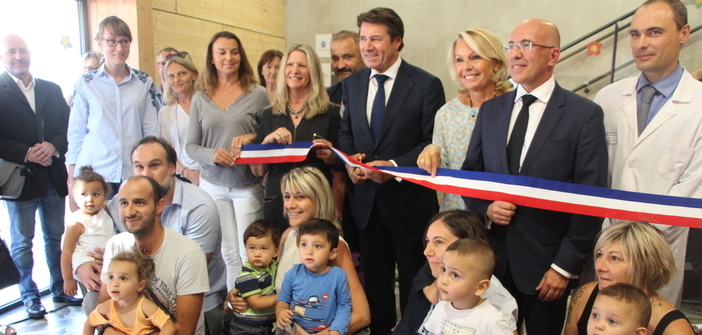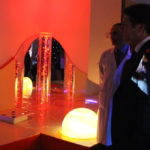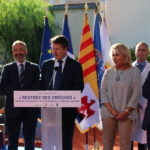As part of the development of reception places, equipment for people with reduced mobility, and in general to promote the well-being of households, the University Hospital Center and the city of Nice have implemented one of the most innovative systems. To facilitate the lives of children with developmental disorders and their families, the Iris nursery can now rely on the “Passerelle” system. It was inaugurated on Monday, September 11, at this same nursery, in the presence of Christian Estrosi, Eric Ciotti, the deputy mayor in charge of family policy Françoise Monier, and Caroline Chassin, General Secretary at the CHU.
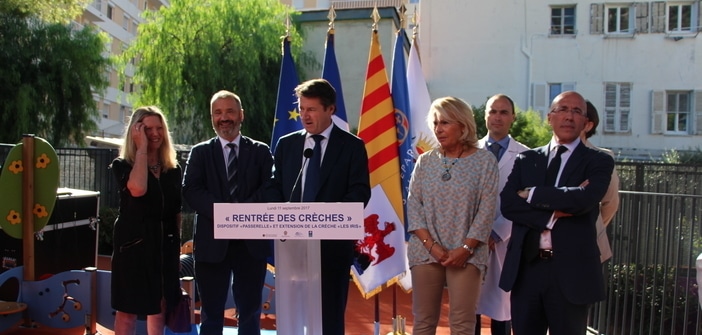
This is a first in France. For 7 years, the CHU and the community have been thinking about an intelligent project to combine, on the same site, a nursery and outpatient sessions. Thus, children with difficulties can gain more convenient access to care. The idea was able to materialize when the building, now the Early Medical-Social Action Center (C.A.M.S.P), became available. Since February 2016, the link between the two buildings has a name and fulfills its function: Passerelle.
Since its inception, the system has welcomed nearly 30 children with specific needs. There are 58 professionals working with the children, including 13 in the medical team of the C.A.M.S.P. To care for these children, the teams can rely on a new feature, the “Snoezelen” sensory room. In this relaxing space with soft lighting and gentle music, children can receive adapted therapeutic care that stimulates their senses. Furthermore, thanks to this arrangement, the building has been able to provide 20 additional reception places.
After visiting the premises, Christian Estrosi, accompanied by Eric Ciotti, wanted to thank all the actors of this project in the courtyard of the Iris, between children’s games and garden area. “We always say in our society that we must ensure equal opportunities. So that disability is not an issue in defining a human being’s future,” added the mayor of Nice. “With this project, we have chosen to demonstrate this.”
“This human response adapted to the child and his family” significantly improves their situation.
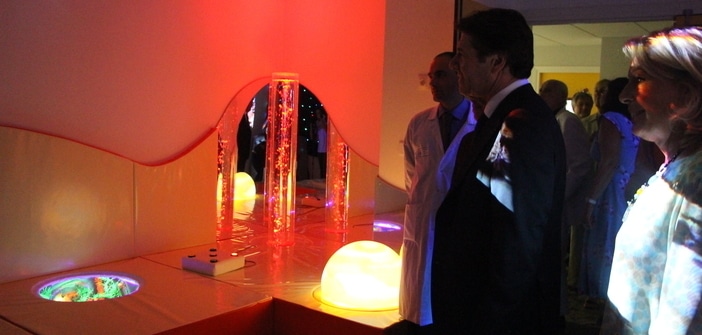
“He went to the nursery like any other child”
The son of Adelia Barbosa was the first to benefit from the CAMPS system. He and his mother experienced “the before, the during, and the after,” explained Adelia. Before the creation of the bridge, Zalion could not attend the nursery every day. Half a day was taken up for just 30 to 45 minutes of care. The mother had to live to the rhythm of her child, with the consequences that followed. Feeling abandoned, she had to fight administratively, financially, and especially to obtain a social life assistant. This very positive woman advises all parents in the same situation to remain strong! “I have always fought and I will fight to the end for my son.”
The change was a real relief for the mother. Firstly “because he went to the nursery like any other child and full time,” she testifies, smiling. Their daily life was facilitated, and little Zalion’s mother was able to resume her professional and private activities. She wishes to thank the teams who were attentive and very professional. Day after day, year after year, she noticed that her son was making tremendous progress. The proof: although the professionals told Mrs. Barbosa that her son would not be able to attend school, he is now in kindergarten.
Océane Da Silva
